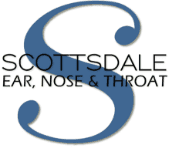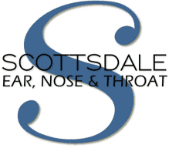If you’ve been diagnosed with an allergy to something in your environment, you’ve probably been told that the best course of action is to avoid whatever triggers your allergy. Easier said than done, right? That’s why we’ve put together some top tips to help you avoid those annoying allergens, as well as a handy list of other things to avoid which may trigger your allergy.
For ease, we’ve split our tips into groups according to the most common things that people are allergic to in the environment:
Pollen
- Use high-efficiency HEPA filters on your furnace and vacuum cleaner.
- Keep your car and house windows closed and set the AC to recirculate.
- Stay indoors, where possible, if pollen counts are high. (You can check pollen counts in your local area at pollen.com.)
- Avoid yard work or wear a micro-fiber mask when digging.
- If you’ve been working outside, shower after and clean your hair, eyes, and eyelashes.
- If exercising outdoors, breathe through your nose.
- Avoid industrial plants and highways as air pollution can worsen your symptoms.
- Take anti-allergy medication 30 minutes before you go outside.
Mold spores
- Avoid areas where mold often grows such as barns, greenhouses, summer cottages, and uncut fields.
- Avoid mowing grass, raking leaves, working with hay, and handling mulch or compost.
- Keep your car and house windows closed, set the AC to recirculate, and avoid using fans that draw in air from outdoors.
- If you live in an area of high humidity or have a basement, use a dehumidifier in your house.
- Clean AC units, swamp coolers, refrigerators, furnace filters, and dehumidifiers.
- Make sure your clothes are completely dry before storing them.
- Use fungicide or bleach to clean moldy areas.
Animal dander
- If you own a furry pet, try to keep him or her outdoors, and when they are indoors, keep them to a room with a polished, easy-to-wipe floor.
- Wash your furry pet once a week in warm, soapy water.
- Use high-efficiency HEPA filters on your furnace and vacuum cleaner and vacuum clean your floors often.
House dust mites
- Regularly clean your house using a vacuum cleaner and reduce clutter.
- Wash bedding in 130°F hot water every week.
- Wear a mask when cleaning and avoid the cleaned area for 20 minutes after you are done cleaning.
- Regularly change furnace and AC filters.
- Use allergen-proof covers for your mattress and pillows.
- If you live in an area of high humidity or have a basement, use a dehumidifier in your house.
Cockroaches
- Use bait traps or call a professional exterminator to get rid of any cockroach infestations.
- Keep your food and garbage in closed containers.
- Wash up dirty dishes on the same day you use them.
- Vacuum clean your floors regularly.
- Don’t store paper bags, cardboard boxes, or newspapers.
- Seal plumbing openings, cracks, and crevices.
Following all of these rules can be challenging. If you find that you can’t stick to these rules, you can consider other therapies to help with your allergy. You can find more information about these therapies and allergies in general on our website here.
It can also help to reduce your exposure to other allergens that could potentially trigger your allergy. For example, if you are allergic to Alder trees, then you may also be allergic to almonds and apples. Here is a more comprehensive list of these cross-reactive allergens:
| What you know you are allergic to |
What you should also avoid |
| Alder |
Almonds, parsley, hazelnuts, apples, cherries, peaches, pears, strawberries, raspberries, celery |
| Birch | Almonds, chicory, cilantro, fennel, hazelnuts, parsley, parsnips, soy, wheat, apples, apricots, avocados, bananas, cherries, figs, kiwis, nectarines, peaches, pears, peppers, plums, prunes, strawberries, carrots, celery, potatoes |
| Grass | Figs, melons, tomatoes, kiwis, peaches, celery |
| Mugwort pollen | Cilantro, fennel, parsley, sunflower seeds, peppers, carrots, celery |
| Ragweed | Echinacea, dandelions, hibiscus, chamomile tea, sunflower seeds, bananas, cantaloupes, cucumbers, honeydew, watermelon, tomatoes, zucchinis, artichokes |
| Molds | Possible cross-reactions: mushroom, spinach |
| Latex rubber | Chestnuts, bananas, avocados, kiwis, papayas |
Whatever your allergy, at Scottsdale Ear, Nose & Throat, our highly trained ENT doctors can provide you with relief so you can get on with your day. Schedule an appointment to get help with your allergy today by calling us at 480-684-1080.



